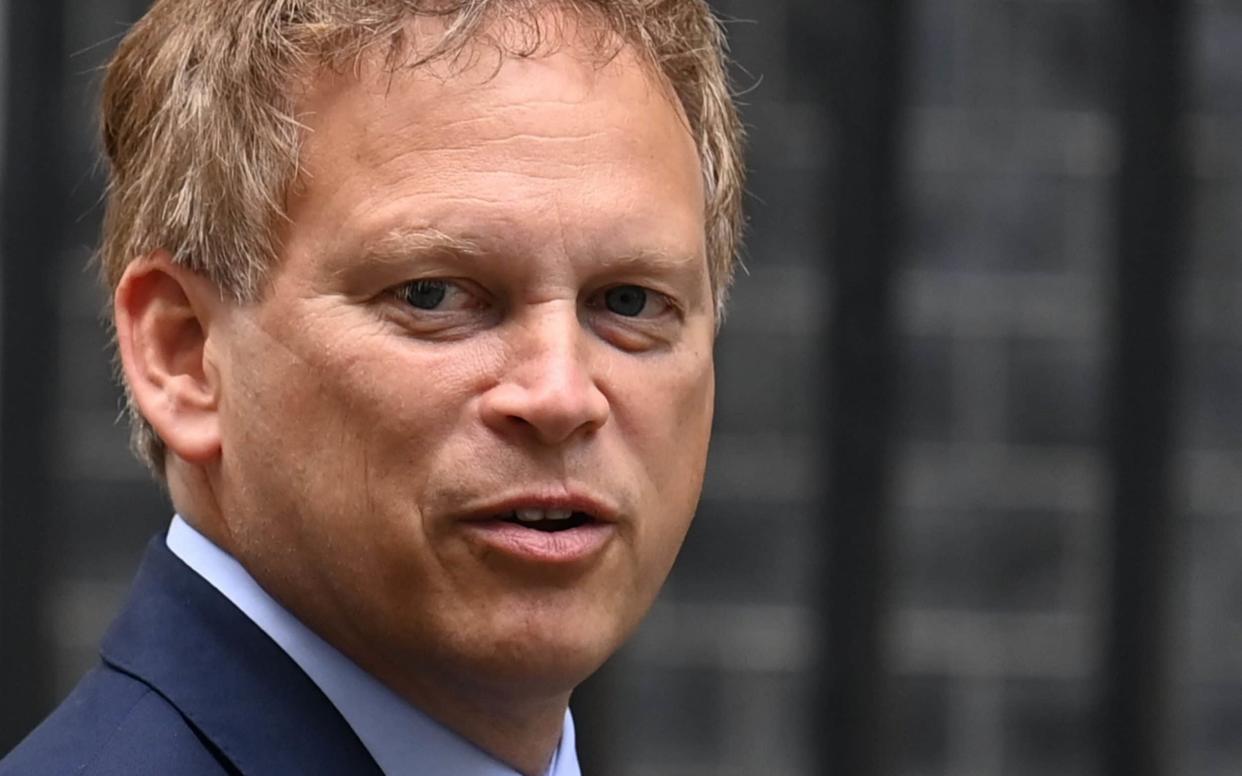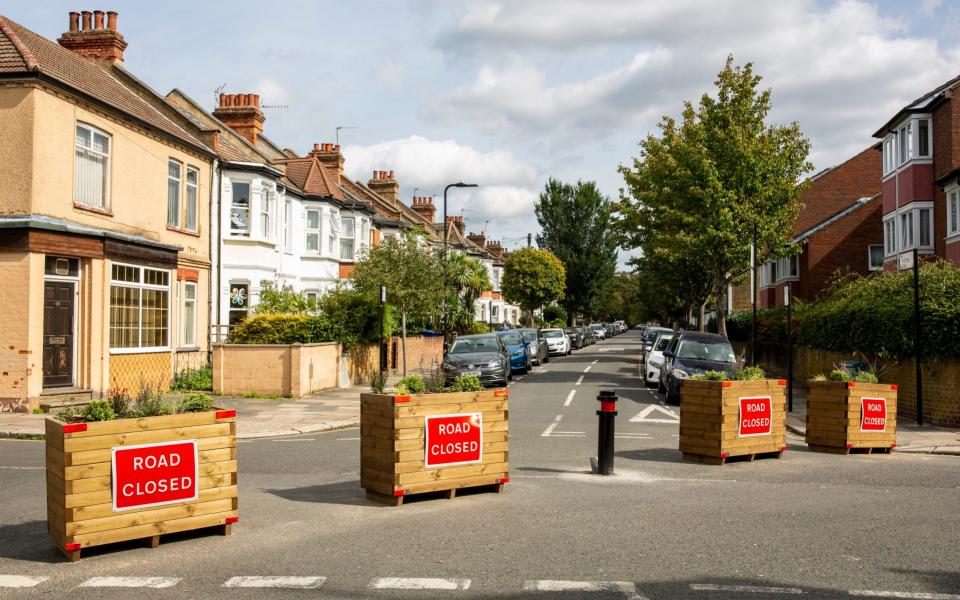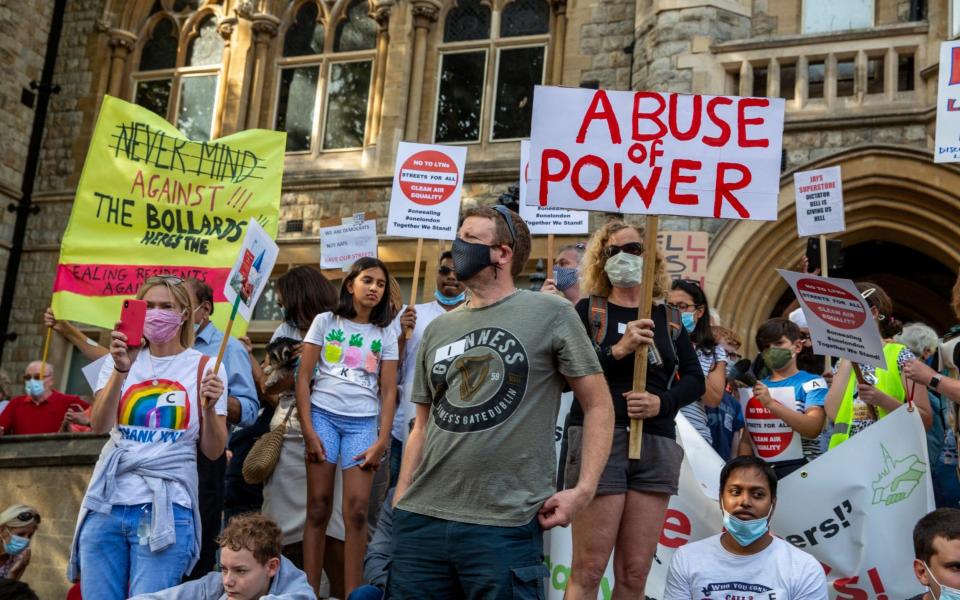Transport Secretary admits new cycle lanes are leaving roads 'backed up' with traffic

The Transport Secretary has admitted too many cycle lanes are being left “unused” with traffic “backed up” as a result of his green transport revolution, The Telegraph can reveal.
In a strongly worded letter sent to councils, Grant Shapps has warned he is “not prepared to tolerate” badly designed road closures and new cycle lanes which are imposing “sweeping changes” to entire communities.
And in a move that will infuriate cycling and green campaigners, he has declared the Government is not anti-car, explaining: “No one should be in doubt about our support for motorists.”
Mr Shapps announced a £250 million Emergency Active Travel Fund in May intended to promote walking and cycling as the country emerged from lockdown. Councils were invited to apply for the cash by drawing up projects intended to entice people away from their cars and take more active forms of travel.

However, critics have complained that badly designed road closures and new cycle lanes have in fact increased traffic and pollution on main roads, as well as reduced the number of people visiting high streets at a time when small businesses are desperate to recover from lockdown.
Private residents have even launched legal action, claiming that because the schemes were introduced under emergency Covid powers, disability groups, local residents and businesses were not consulted, and consequently, normal local democratic procedures have been ignored.
Meanwhile, so-called ‘Low Traffic Neighbourhoods’, where bollards and planters close off residential streets to traffic, have resulted in delays to 999 emergency response times as police, paramedics and fire crews encounter newly shut roads.
The letter, sent on Friday to local authority transport bosses and local highways authorities and seen by The Telegraph, warns how a “notable number of councils used their funding poorly and were simply out of step with the needs of the local communities.”
Mr Shapps continues: “I saw or heard from the public and parliamentary colleagues about far too many instances where temporary cycles lanes were unused due to their location and design, while their creation left motor traffic backed up alongside them; of wide pavements causing unnecessary congestion in town centres; and other issues that many have, rightly, reacted angrily to.”
He explains how he had ordered his staff to “engage” with those councils where he had “concerns”, because badly thought out road closures and cycle lanes had been introduced.
“Since then, numerous schemes have been scaled back and revised,” he wrote. “I am pleased with this, but the work will continue where local residents continue to have concerns.”
He warns the second round of funding in the scheme could see some town halls receiving “considerably less” money if they fail to “embrace good design” or “consult their local communities”.
He adds: “We all want to see the benefits that active travel brings to be realised, but poorly implemented schemes will make no friends for the policy or more broadly for active travel…
“The crucial test is, does it deliver for the community it serves, and has it been done with their consultation.
“Schemes must balance the needs of cyclists and pedestrians with the needs of other road users, including motorists and local businesses.
“Only authorities which have passed these key tests will receive the funding they have asked for.
“I want to be absolutely clear: we are not prepared to tolerate hastily introduced schemes which will create sweeping changes to communities without consultation, and ones where the benefits to cycling and walking do not outweigh the dis-benefits for other road users.”

The letter comes after thousands of people have held demonstrations and signed petitions forcing some town hall bosses into a series of humiliating U-turns after they introduced schemes with little or no public consultation.
Last week, the Telegraph revealed how some councils were making hundreds of thousands of pounds in fines from motorists driving on newly closed roads.
Projects in some parts of London have proven so divisive that planters have been daubed with graffiti and bollards ripped from the concrete. In one West London borough, opposition has been so vehement that police have had to attend to support council workers as they installed planters and bollards to close roads.
So far, a total of £42,102,454 has been secured by 111 councils in England, including many London boroughs where opposition has been most vocal.


 Yahoo News
Yahoo News 
